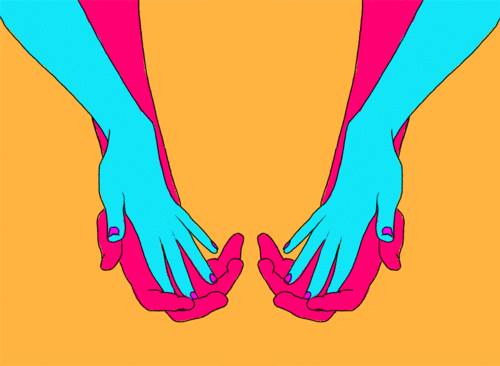If you’re going through a period of $exual abstinence, then beware.

Your vagina is going to grow cobwebs, tumbleweeds will roll across your pelvic floor, and nobody will be able to get into your intimate bits again without a crowbar and a sacrificial goat.
Oh wait, except none of that is true. There are physical consequences of going a while without $ex, but many of them are basically negatively focused, which means you’re simply not getting the health benefits $ex usually brings.
Which sucks, I know, but you are not going to freeze up, grow a new hymen, be incapable of ever going near another person’s $exual organs again, or drop dead unexpectedly of $exual frustration.
Lifelong celibacy is a different prospect than experiencing $ex and then stopping it. (Yes, scientists do study celibate people. The Nun Study, which looks at the health of a 600-strong group of American nuns, has been ongoing since 1986.)
If you’ve had $ex before and now you aren’t, then you’re understandably more prone to disappointment and depression, as a 2001 study found. But the impacts do go beyond mental annoyance and longing. Celibacy has effects on your body, but they’re hardly life-threatening, and they definitely aren’t going to get in the way of your next $exual adventure.
Here are nine things that happen to your body after you stop having $ex. Most of them aren’t great, but they also aren’t going to kill you. It’s all good.
1. NO, YOU WON’T GET “TIGHTER”
Abstaining from $ex does not make you “tighter.” That’s an urban myth. The sensation of tightness in your vagina is not influenced by your number of $exual partners, and taking an enforced break doesn’t re-virginize you. And your hymen doesn’t grow back, no matter what you may have heard in the bathrooms in middle school. However, the tissues of the vagina may get out of the habit of relaxing in response to arousal or insertion, and may then need to be coached back into it the next time you have $ex. Don’t worry; they’ll remember.
2. MEN ARE MORE LIKELY TO HAVE ERECTILE DYSFUNCTION

This is an interesting discovery, but possibly not one that’s welcome if you’re a dude having a bit of time off from intercourse. Abstinence seems to increase the likelihood of erectile dysfunction in men. The studies on this tend to focus on older men, but they’re all united in the conclusion that regular $exual activity has a positive effect on a man’s erections. Use it or lose it, as it were. (There’s also a possibility that regular ejaculations might help a man avoid prostate cancer. But, you know, you can have those on your own.)
3. YOUR IMMUNE SYSTEM BECOMES MORE VULNERABLE

It seems as if $exual activity actually contributes positively to your body’s immune function. (In women, these changes appear to be geared toward making it easier to get pregnant.) The flip side, unfortunately, is that if you’re not getting busy regularly, then you’re not getting those benefits, and you may be more prone to illnesses and infections that your immune system would otherwise block.
4. YOUR LIBIDO MIGHT DROP

This is actually not entirely clear. Some experts are thorough advocates for regular $exual activity as a way of “stoking the fire” of your libido, in the belief that a period of abstinence will lessen $exual desire over time as your body dampens hormonal response to arousal. Others disagree, though, so it may be a personal matter that depends on your own $exual experiences.
5. YOU MAY BECOME MORE STRESSED

This is another of those cases in which the link between positives (regular $ex and stress-busting) becomes a negative (no $ex and higher stress reactions). Small studies have found that people who haven’t had regular $exual intercourse have higher blood pressure spikes in response to stress than people who have recently gotten laid. In particular, if you’ve been used to the stress-lowering pluses of $ex, then its absence may not have a good impact on your general ability to cope with anxious moments.
6. YOUR CARDIOVASCULAR HEALTH MIGHT SUFFER

A good $exual life is strongly linked to cardiovascular health, and entering a $ex drought removes that hormonal and aerobic boost. But not a lot of work has been done on precisely what happens to the heart after a period of no $ex. It may just be the case that if you take out your $exual frustration on the treadmill, then your heart will end up healthier than it was before you stopped.
7. YOU MIGHT TAKE LONGER TO GET WET

It turns out that having regular $ex is basically a way of tuning up your $exual organs, and that going without for a while means they’re a bit slow to start up. (And might need a bit of hand-cranking. OK, analogy over.) $exual health experts point out that the lubrication process of arousal (wherein your vagina and vulva become “wet”) benefits from regularity, and if you stop for a while, you might need a bit of extra help in the arousal department when you get back in the saddle.
8. YOU DRASTICALLY LOWER YOUR RISK OF UTIS AND STDS

At last, some good news. The STD part may not come as a surprise, but UTIs (urinary tract infections) are often caused by the transfer of bacteria to the urinary tract during $ex (particularly from the anus). So a $ex-free life will keep you secure. You can, however, get various STDs and UTIs from non$exual contact, so you’re not completely out of the woods.

At last, some good news. The STD part may not come as a surprise, but UTIs (urinary tract infections) are often caused by the transfer of bacteria to the urinary tract during $ex (particularly from the anus). So a $ex-free life will keep you secure. You can, however, get various STDs and UTIs from non$exual contact, so you’re not completely out of the woods.
9. YOU WON’T BE AS INTELLIGENT AS YOU COULD BE

There’s an old wives’ tale that abstinence makes you more intelligent. The truth is actually the opposite: Scientists have demonstrated that $exual activity boosts neuron growth in the brain’s hippocampus. Abstinence, it turns out, does not make the brain grow at all. Just because you’ve suddenly become immensely productive and completed a crossword for the first time in six weeks doesn’t mean your brain’s improving. Alas, it probably just means you’re bored.
Want more $exual health coverage? Check out Bustle’s new podcast, Honestly Though, which tackles all the questions you’re afraid to ask.
REPIN IT

No comments:
Post a Comment